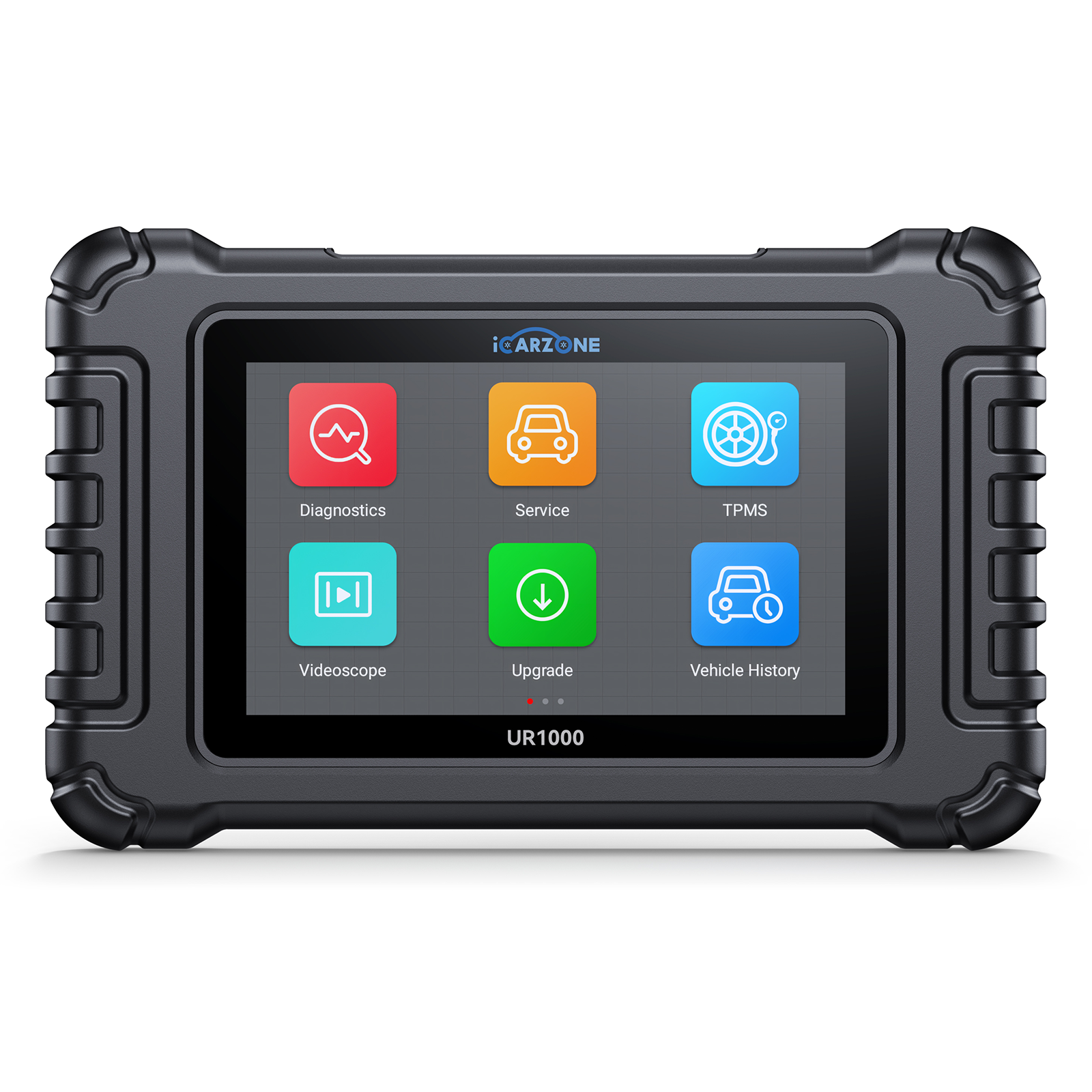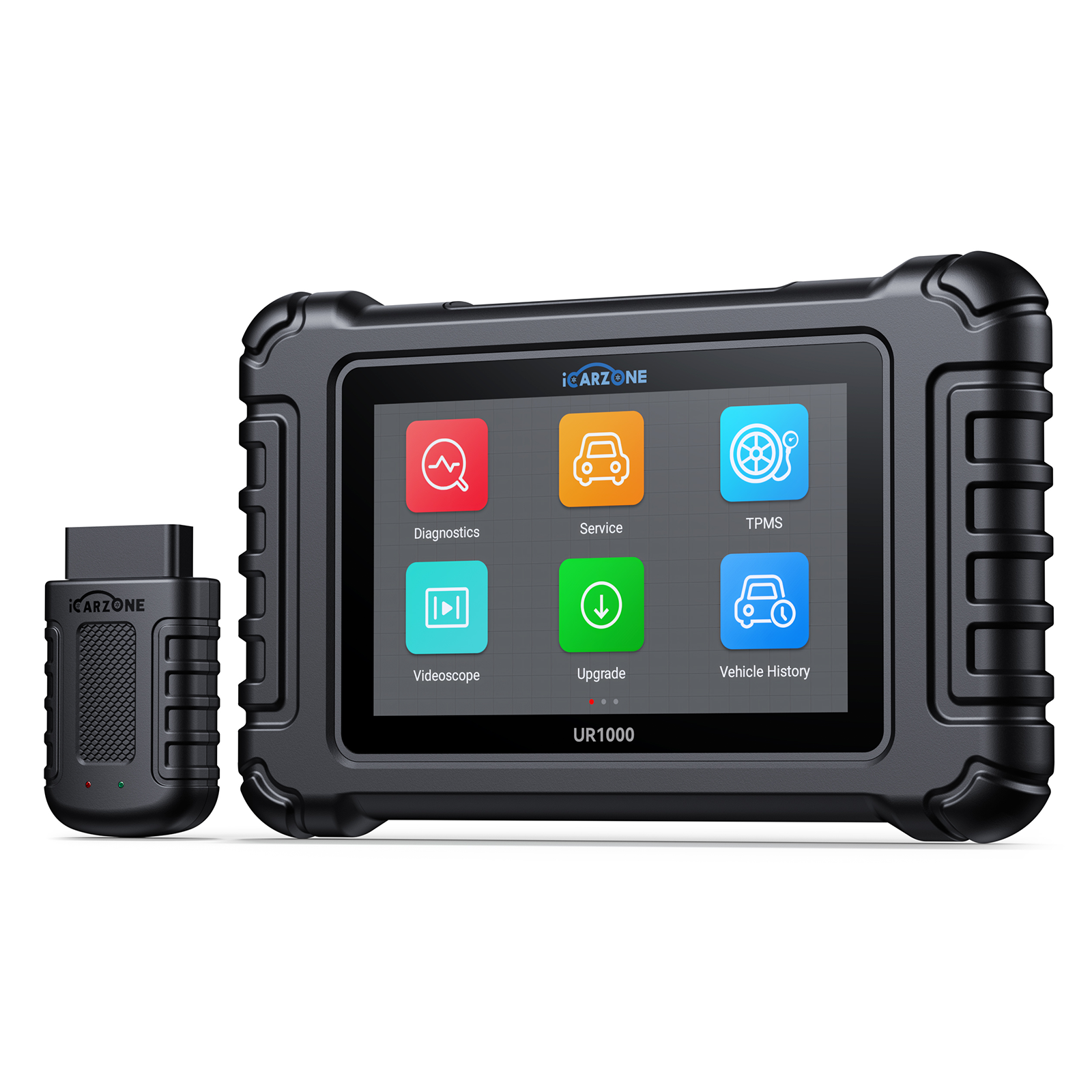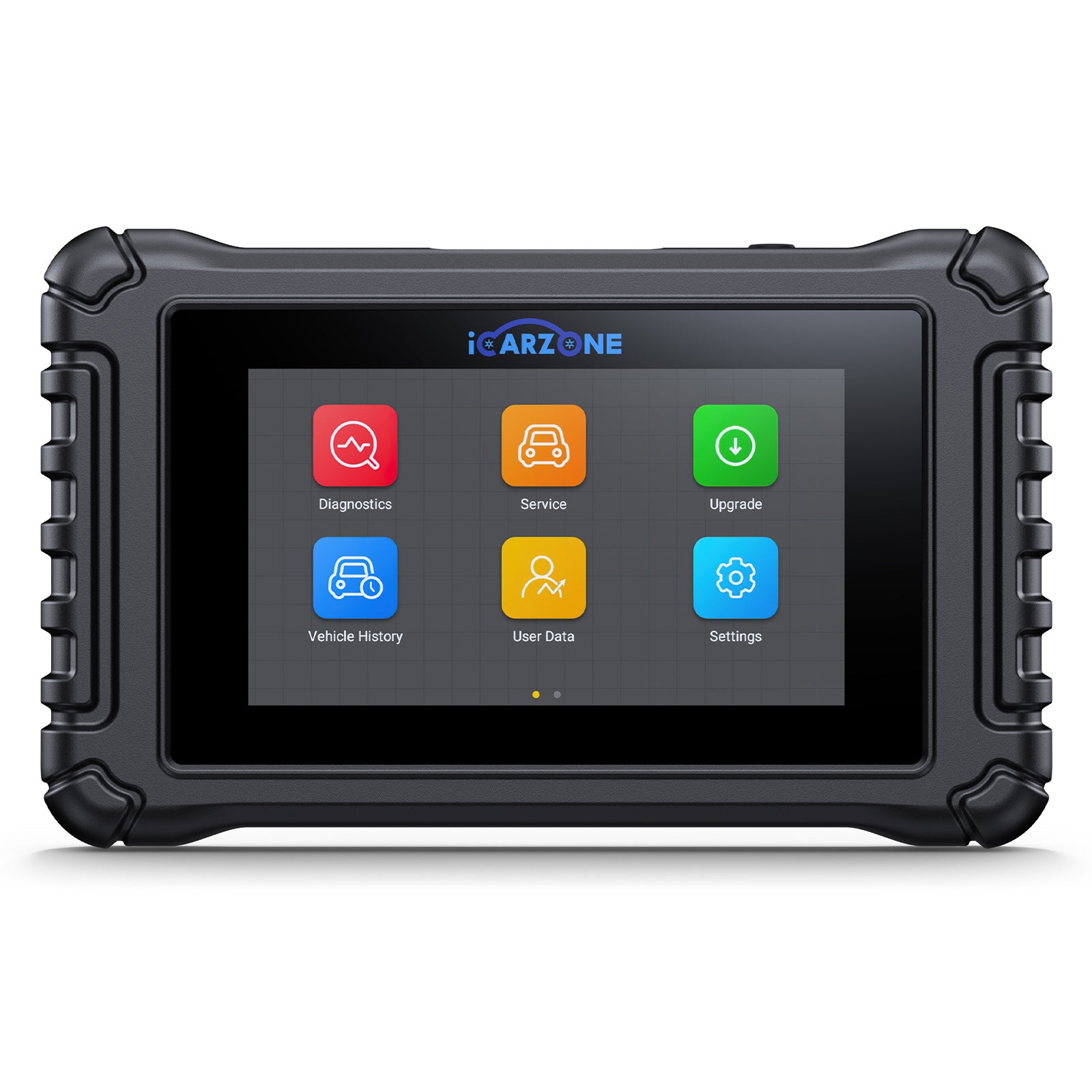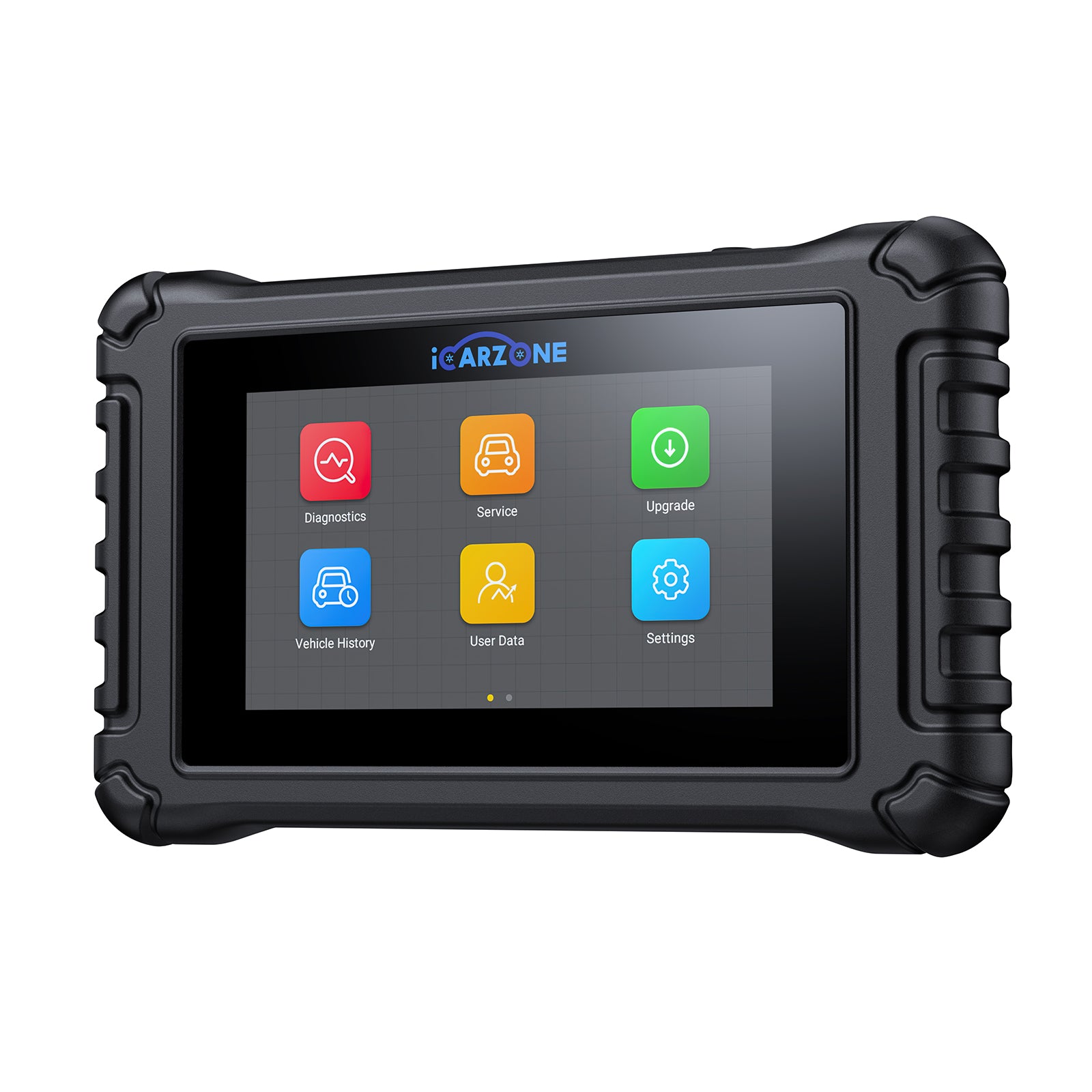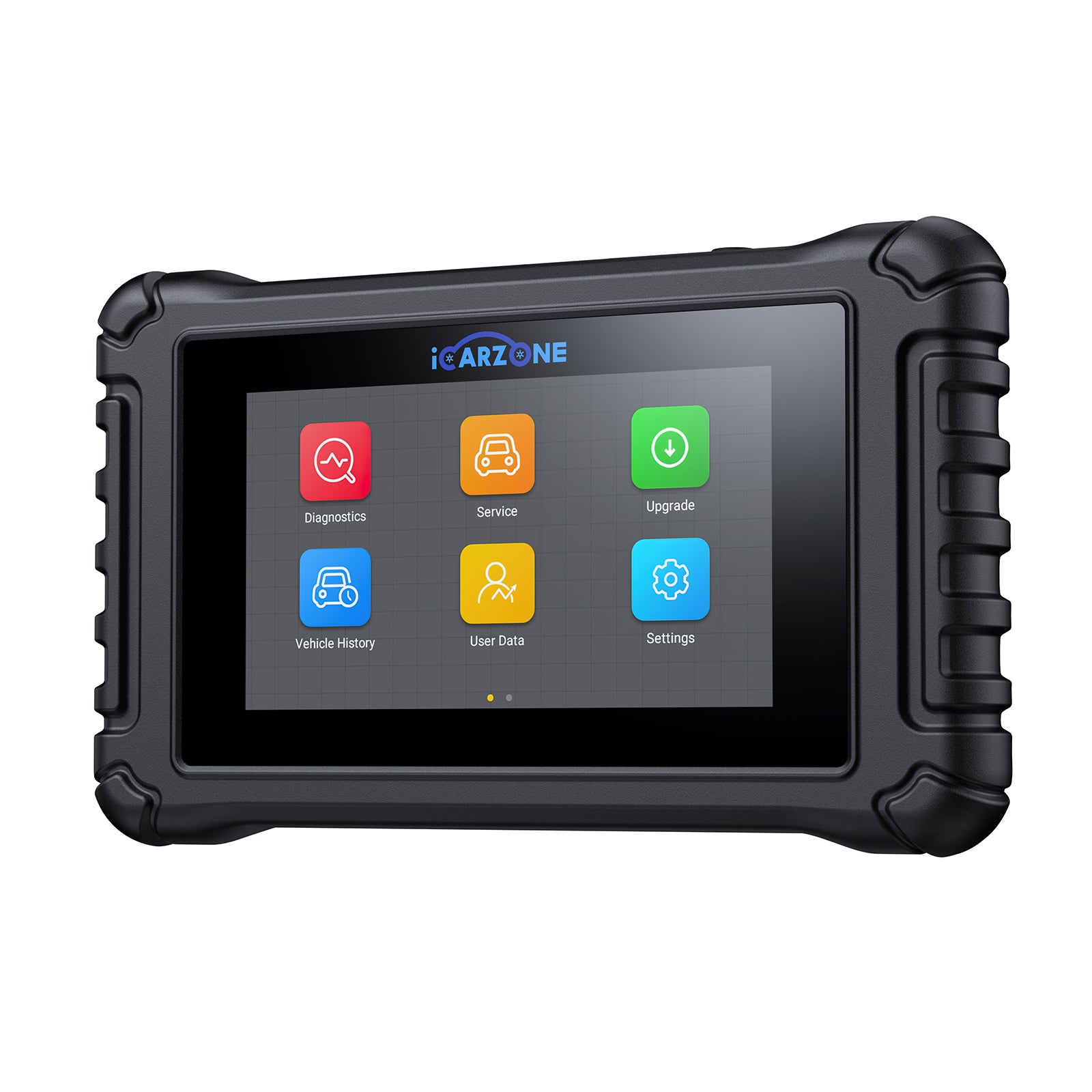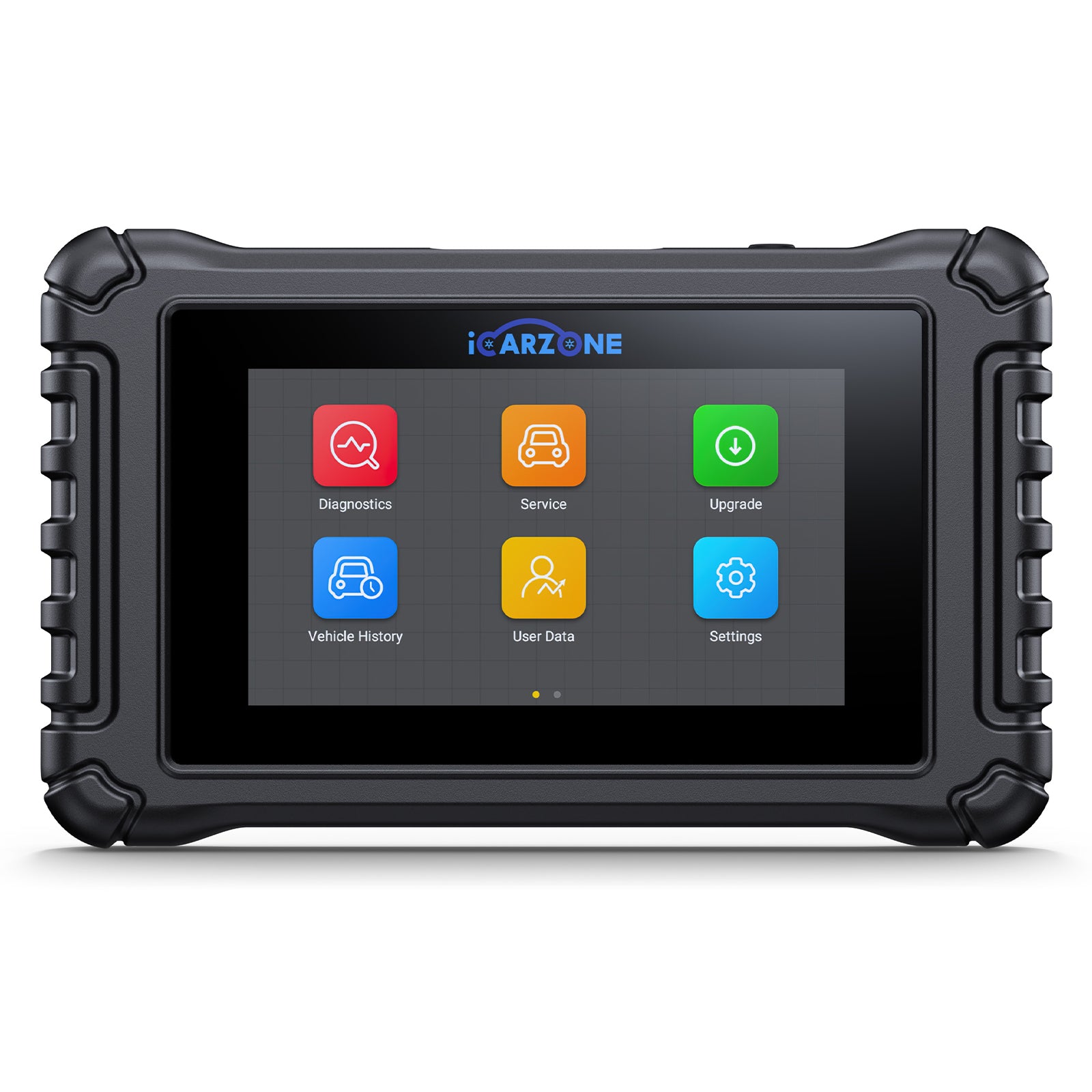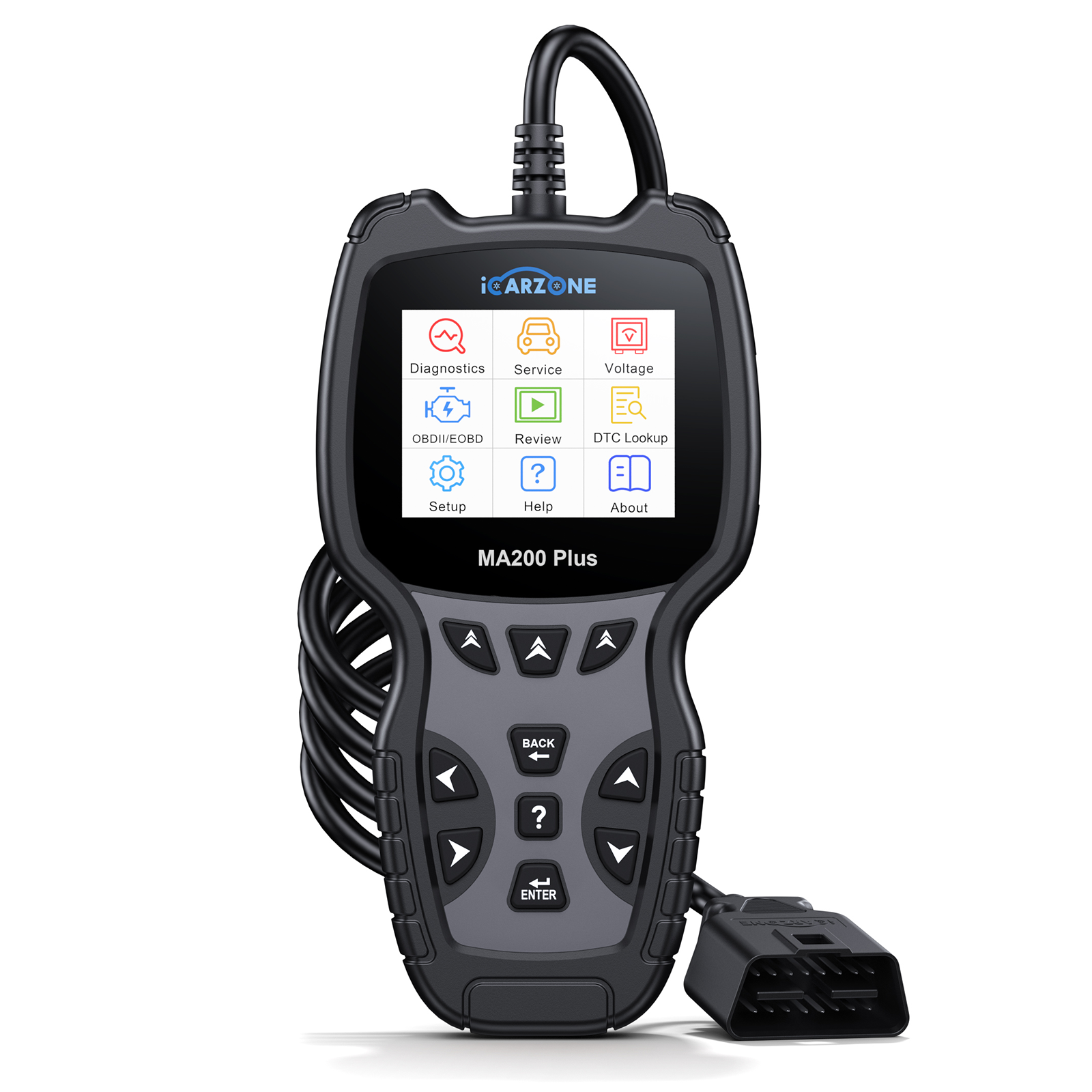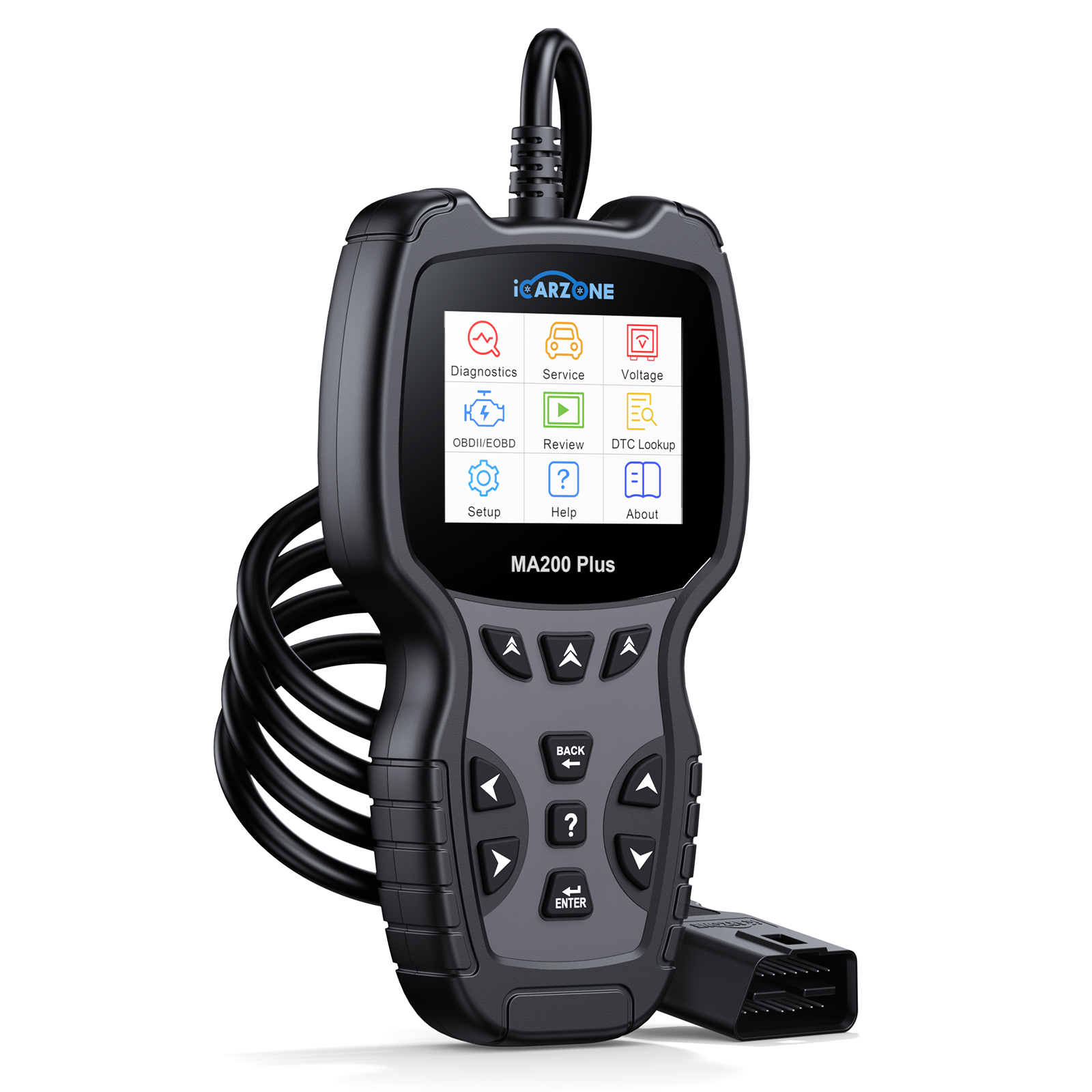P0130 Oxygen Sensor Fault: Diagnose & Repair in Cars with UR1000 [Expert Tips]
![P0130 Oxygen Sensor Fault: Diagnose & Repair in Cars with UR1000 [Expert Tips]](http://icarzone.com/cdn/shop/articles/13_942ec7c6-cf5f-4343-ac3c-8c096df167e2.png?crop=center&height=1370&v=1758335306&width=2000)
The P0103 code is a critical diagnostic trouble code affecting popular European and American vehicles, particularly Ford F-150 P0103 and Volkswagen Tiguan P0103 models. This code indicates a Mass Air Flow (MAF) sensor circuit high input, a common issue in vehicles like the 2015-2022 Ford F-150 P0103, Volkswagen Tiguan 2.0T P0103, and BMW 3 Series P0103. This guide explores model-specific causes, symptoms, and solutions, with expert advice on using the iCarzone UR1000 for precise diagnosis.
What Is P0103 Code in European and American Vehicles?
The P0103 code signals that the Engine Control Module (ECM) has detected an abnormally high voltage input from the Mass Air Flow (MAF) sensor. The MAF sensor measures the amount of air entering the engine, providing critical data for the ECM to calculate the optimal air-fuel mixture (typically 14.7:1 for gasoline engines).
In European and American vehicles like Ford's EcoBoost engines, Volkswagen's TSI powertrains, and BMW's B48 engines, the MAF sensor operates on a 5V reference circuit. Normal voltage ranges typically from 0.5V (low airflow) to 4.5V (high airflow). When voltage consistently exceeds 4.5V, the ECM triggers the P0103 code, indicating a sensor or circuit malfunction.
Note: P0103 specifically indicates high voltage in the MAF circuit, distinguishing it from P0100 (general circuit malfunction), P0101 (sensor rationality), and P0102 (low input) codes common in European and American vehicles.

Common Causes of P0103 in Popular European and American Models
Engineering differences in European and American vehicles result in varying specific causes for P0103:
- Ford F-150 (2015-2022): Ford F-150 P0103 most commonly results from MAF sensor harness wear. The 3.5L EcoBoost model's harness runs near the turbocharger, where high temperatures easily degrade insulation, causing short circuits between signal and power wires, particularly in vehicles with over 80,000 miles.
- Volkswagen Tiguan (2018-2022): Volkswagen Tiguan P0103 primarily stems from MAF sensor connector corrosion. The 2.0T model's sensor sits below the intake manifold, where humid environments easily cause pin oxidation, creating high-resistance circuits, occurring in 42% of vehicles in rainy regions.
- BMW 3 Series (G20, 2019-2022): BMW 330i P0103 often occurs due to MAF sensor failure. The B48 engine's sensor is sensitive to fuel quality; low-grade gasoline causes hot wire carbon buildup, affecting signal output, more common in vehicles with infrequent air filter replacements.
- General causes: All models may trigger P0103 due to intake system leaks (especially downstream of the sensor), abnormal ECM supply voltage (over 5.5V), or internal ECM faults, though these occur less frequently than model-specific causes.
Symptoms of P0103 in European and American Vehicles
European and American vehicles typically exhibit these classic symptoms when P0103 is present:
- Illuminated Check Engine Light: The most obvious initial symptom, often accompanied by "Service Engine Soon" in Ford F-150 or "Engine Malfunction" warnings in BMW models.
- Reduced acceleration: Particularly noticeable in turbocharged models like the Volkswagen Tiguan 2.0T P0103, which experiences power delay during highway passing as the ECM enters limp mode to limit fuel injection.
- Erratic idle: A common symptom in Ford F-150 EcoBoost P0103, with engine speed fluctuating between 600-1000 RPM, more pronounced during cold starts.
- Decreased fuel economy: Owners report 15-20% higher fuel consumption in BMW 330i P0103 models, as the ECM defaults to a rich fuel mixture to prevent engine damage.
- Difficult starting: In cold temperatures, Volkswagen Tiguan P0103 may require multiple attempts to start, especially in temperatures below -10°C.

How Serious Is the P0103 Issue?
P0103 is a moderately serious issue in European and American vehicles requiring timely attention. In the short term, it causes decreased fuel economy and power loss, affecting driving experience. Long-term neglect can lead to more severe problems:
For Ford F-150 EcoBoost P0103, continuous rich fuel mixtures cause turbocharger carbon buildup, shortening its lifespan, with replacement costs ranging from $1,500-$2,500. In Volkswagen Tiguan P0103, incorrect air-fuel ratios accelerate catalytic converter aging, potentially triggering P0420 codes, with converter replacement costing approximately $800-$1,200.
Additionally, in regions with strict emissions testing like Europe and California, P0103 will cause test failures, affecting vehicle legality. In areas with strict emissions regulations, driving with an illuminated Check Engine Light due to P0103 may result in fines.
P0103 Trends in Specific European and American Models
P0103 occurrence shows distinct trends across specific European and American models:
- Ford F-150 3.5L EcoBoost (2017-2019): Due to harness design flaws, this generation has 63% higher P0103 rates than post-2020 models. Ford has released TSB 21-23-04 for recall improvements.
- Volkswagen Tiguan 2.0T (2018-2020): Early MQB platform models have insufficient MAF sensor water resistance. Vehicles in humid regions experience 2.8x higher P0103 rates than those in dry climates. Post-2021 models feature improved sealing.
- BMW 330i (2019-2021): The B48 engine's MAF sensor hot wire coating has defects, with 27% P0103 occurrence between 60,000-80,000 miles. Post-2022 models use improved coatings.
Can You Drive with P0103 in Your European or American Vehicle?
Short-distance (10-15 miles) temporary driving is possible after P0103 appears in European and American vehicles, but long-term continued use isn't recommended. If only the Check Engine Light illuminates without other symptoms, you can drive cautiously to a repair facility.
However, if severe symptoms occur—like significant power loss in Ford F-150 P0103, severe idle抖动 in Volkswagen Tiguan P0103, or engine knocking in BMW 330i P0103—immediately stop driving and seek assistance to prevent further engine damage.
Best Fixes for P0103 in European and American Vehicles
Effective solutions for P0103 in European and American vehicles vary by model:
- Ford F-150: Replace with upgraded MAF sensor harness (Ford part #BL3Z-12B579-A), while inspecting and securing harness mounting points to prevent contact with hot components. For 3.5L EcoBoost models, throttle body cleaning is recommended simultaneously.
- Volkswagen Tiguan: Replace MAF sensor connector (VW part #1K0 973 703), treat pins with dedicated dielectric grease, and inspect the intake system for leaks, especially at intercooler hose connections.
- BMW 3 Series: Replace MAF sensor (BMW part #13628677566), use high-quality fuel system cleaner, and replace air filter to ensure clean air intake.
- General solutions: All models require using diagnostic tools to clear codes and road test to confirm repair effectiveness. ECM reprogramming may be necessary for Ford TSB requirements or VW software updates.
Diagnosing P0103 with UR1000 Diagnostic Tool
The iCarzone UR1000 is ideal for diagnosing P0103 in European and American vehicles, with deep protocol support making it more accurate than generic scanners:
- Connect UR1000 to the vehicle's OBD-II port (usually under the steering wheel) with ignition on but engine off.
- On UR1000's 7-inch touchscreen, select the corresponding brand ("Ford"/"Volkswagen"/"BMW") > model > year > engine type (e.g., "3.5L EcoBoost"/"2.0T"/"B48").
- Run a full system scan to confirm P0103 and check for related codes (common: P0172, P0175, P0300).
- Enter "Live Data" mode to monitor MAF sensor voltage—normally fluctuating between 0.5-4.5V with throttle changes. Vehicles with P0103 will show continuously abnormal values >4.5V.
- Use UR1000's "Component Test" function for active MAF sensor testing to verify responsiveness, distinguishing between sensor faults and circuit issues.
- Utilize UR1000's built-in model-specific repair database to access P0103 troubleshooting procedures and common solutions for your vehicle.
UR1000 supports ISO11898 CAN, SAE-J1850, and other protocols common in European and American vehicles, providing accurate MAF sensor data readings critical for resolving P0103 in Ford, VW, BMW, and other makes.
Ready to Diagnose Your European/American Vehicle's P0103?
Cost to Repair P0103 in European and American Vehicles
Repair costs for P0103 in European and American vehicles vary by model and cause:
- MAF sensor replacement: $80-$150 for Ford models; $120-$200 for Volkswagen; $180-$300 for BMW (OEM parts prices).
- Harness/connector repair: $40-$80 for Ford harness; $25-$50 for VW connector; total with labor $150-$250.
- ECM programming/update: $100-$180 at dealerships; some updates can be performed independently with UR1000.
- Total DIY repair cost: $80-$300 (depending on parts needed), saving 40%-60% compared to professional repair.
- Professional repair cost: $250-$500, including diagnosis, parts, and labor.
Repair costs for luxury brands (BMW) are typically 30%-50% higher than non-luxury brands (Ford, VW) primarily due to parts pricing differences.
Preventive Measures for European and American Vehicle MAF Sensors
To avoid P0103 in European and American vehicles, take these preventive measures:
- Use high-quality fuel: For precision engines like BMW, recommend 91 octane or higher to reduce MAF sensor carbon buildup.
- Replace air filters regularly: Every 15,000 miles for Ford and VW models, every 20,000 miles for BMW to prevent sensor contamination from dust.
- Avoid direct water spray when cleaning engine bay: Especially protect MAF sensor connectors; use plastic covers during cleaning.
- Inspect harnesses regularly: Ford F-150 owners should check MAF harness insulation after 60,000 miles, wrapping or replacing immediately if aging is found.
- Perform preventive scans with UR1000: Scan every 3,000-5,000 miles to detect early MAF sensor voltage abnormalities before故障恶化.
Tip: For 2017-2019 Ford F-150 owners, proactively replace the MAF harness around 60,000 miles with Ford's upgraded part #BL3Z-12B579-A to significantly reduce P0103 occurrence. VW and BMW owners should clean MAF sensors annually using dedicated MAF cleaner, avoiding direct compressed air吹扫.
Frequently Asked Questions
Will P0103 affect my European/American vehicle's warranty?
No directly, but secondary damage from unaddressed P0103 (like catalytic converter failure) may fall outside warranty coverage. If your vehicle is still under factory warranty, dealership repair is recommended as most MAF sensors are covered under emissions warranties (typically 8 years/80,000 miles).
Can I use an aftermarket MAF sensor for my European/American vehicle P0103?
For Ford and VW models, quality aftermarket brands (Denso, Bosch) work well but require proper calibration. Luxury brands like BMW recommend OEM sensors, as aftermarket versions may lack sufficient precision, causing P0103 recurrence.
How does UR1000 help diagnose P0103 better than generic scanners?
UR1000 supports proprietary diagnostic protocols for European and American vehicles, accessing detailed MAF sensor data (like dynamic response curves) beyond basic voltage readings. Its built-in model-specific fault trees precisely identify root causes, avoiding unnecessary part replacements.
Can a dirty air filter cause P0103 in my European/American vehicle?
Yes, severely clogged air filters drastically reduce airflow, potentially causing MAF sensors to output abnormally high voltages triggering P0103. This is particularly common in VW Tiguan—always check the air filter before replacing the MAF sensor.
Is P0103 common in modified European/American vehicles?
Yes, European and American vehicles with intake modifications (like high-flow intake kits) more commonly experience P0103, as altered airflow characteristics may exceed normal MAF sensor detection ranges, requiring accompanying ECU tuning.
Fix Your European/American Vehicle's P0103 Today with UR1000



